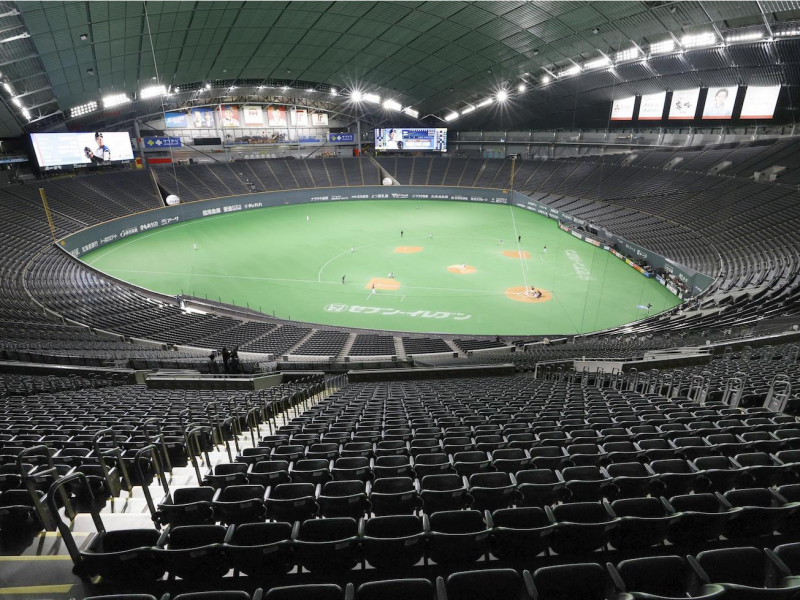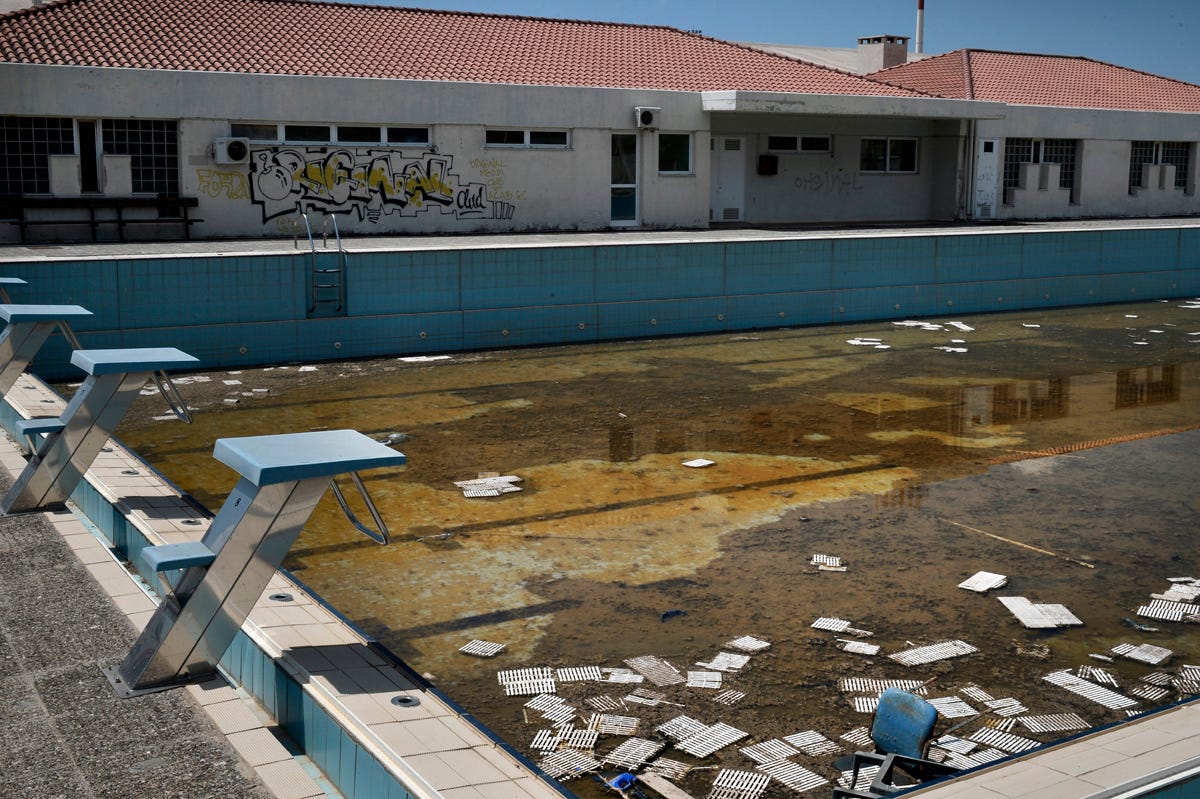- The venues from the Rio 2016 Summer Olympics are already falling apart, and they’re not the only ones.
- Former host cities like Sarajevo, Athens, and Beijing have had venues to suffer the same fate.
- Visit Business Insider’s homepage for more stories.
Hosting the Olympics can be an economic burden on a country, especially if the host nation has to build venues for the games.
Throughout Olympic history, we’ve seen that once the games are over, these venues often become abandoned, crumbling as they go unused.
Take a look at photos below of some past Olympic venues and villages, in cities like Rio de Janeiro, Pyeongchang, Beijing, Athens, and Sarajevo, and how they have become abandoned.
Sam Belden and Emmett Knowlton contributed to this report.
In 2016, Rio de Janeiro hosted the first Olympic Games in Latin America in nearly 40 years.
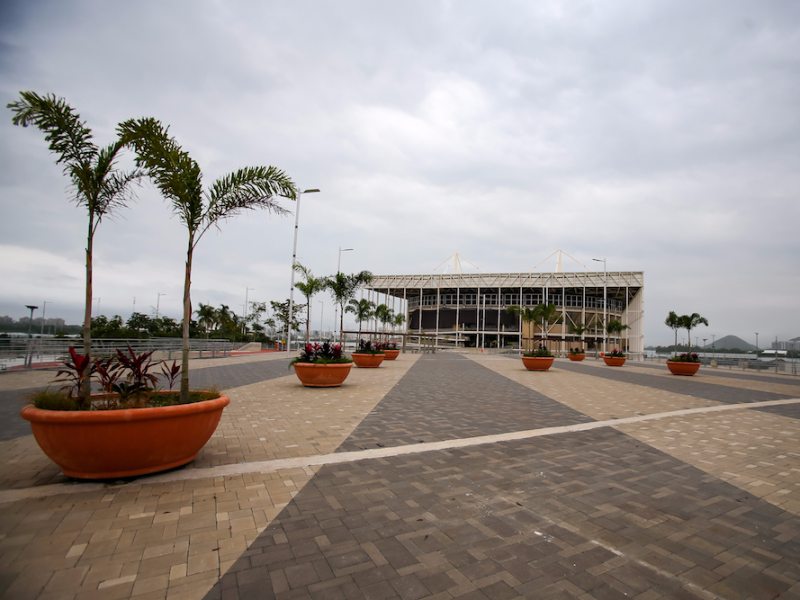
In January 2020, a Brazilian judge ordered the closure of the venues in the Olympic park over safety concerns.
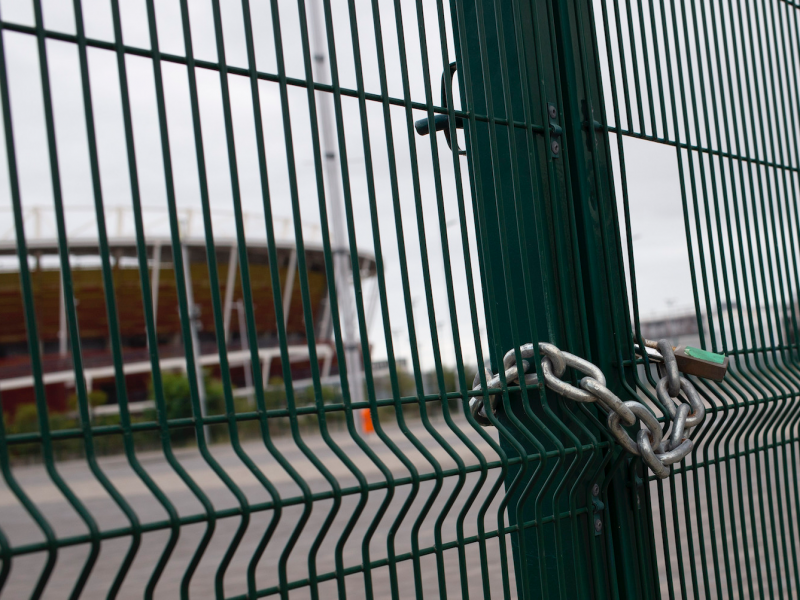
Source: BBC
As of 2017, debris from the demolished media center hadn't been cleaned up.

Many Olympic sites are littered with rusty metal.

Maracana Stadium, where the football tournament was held.
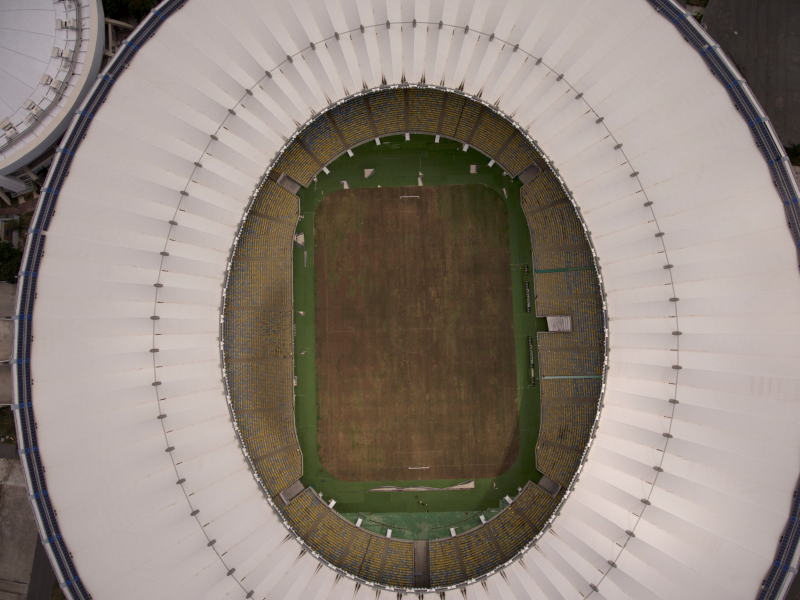
The grass is almost completely dry.
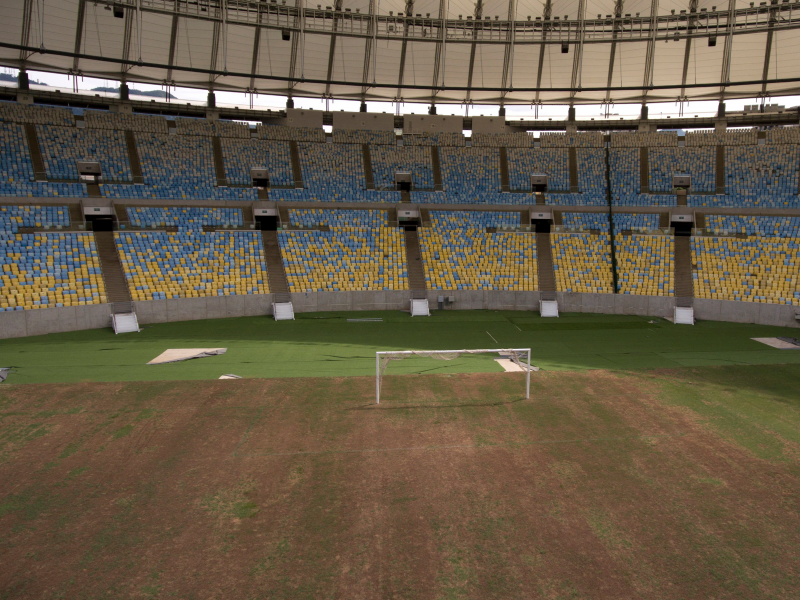
Looters ransacked the stadium back in January, taking items like televisions, fire extinguishers and a statue.
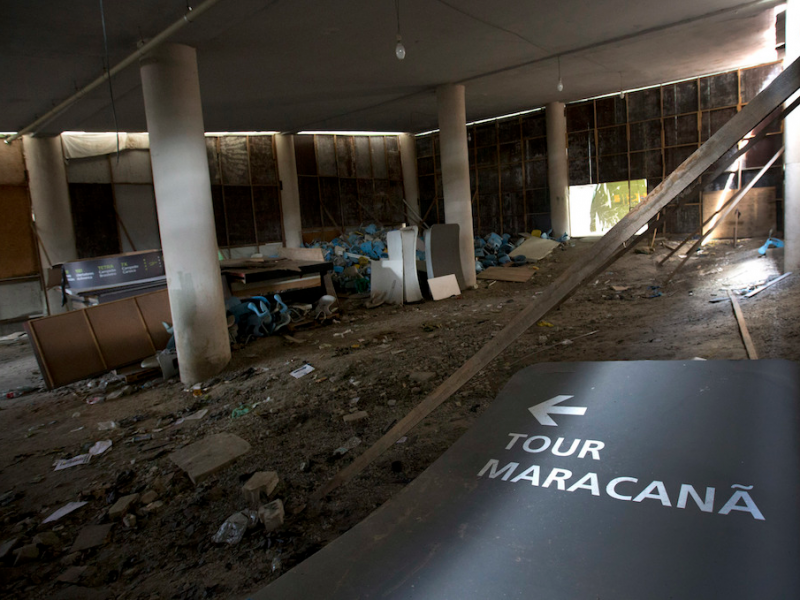
Source: BBC
Aquatics facilities are also in disrepair.

The facilities have been stripped down and remain bare.
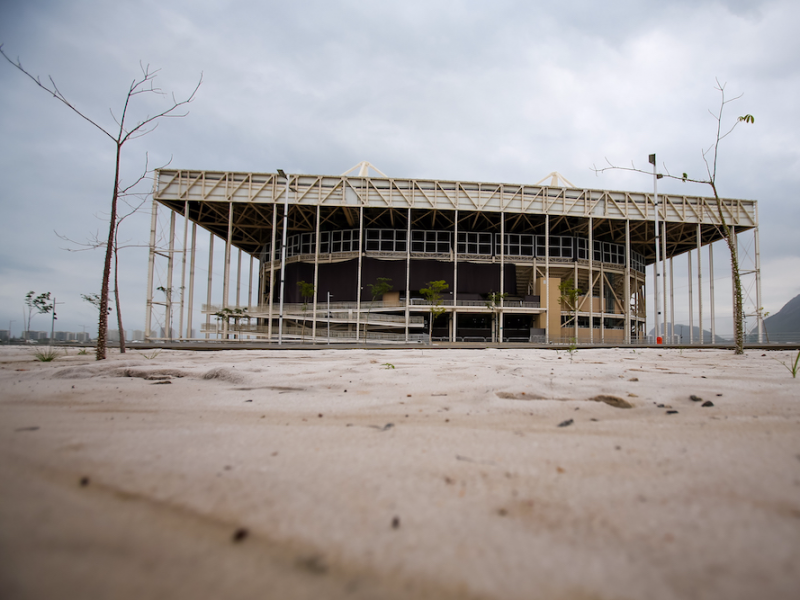
Inside, the stadium is deserted. Puddles of stagnant water cover the floors, creating a breeding ground for mosquitoes.
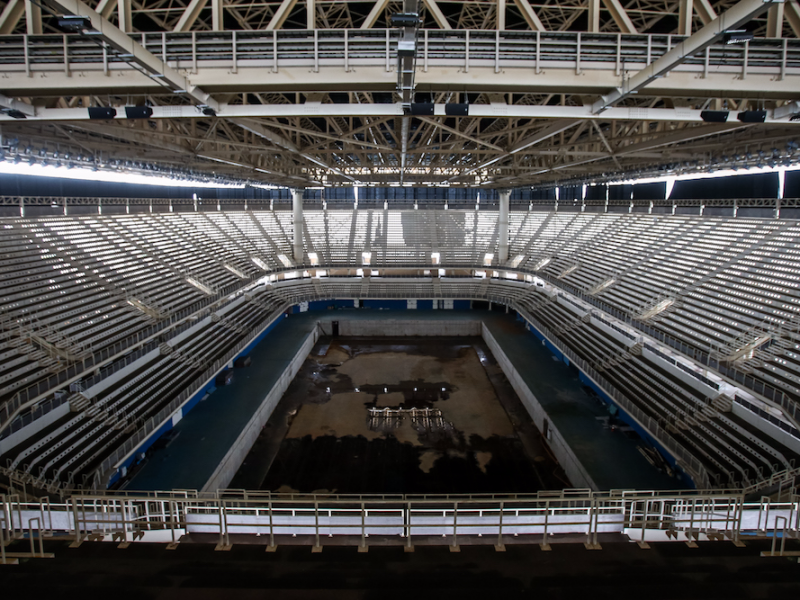
The facility's exterior isn't much better. The city was supposed to tear down the aquatics stadium soon after the Olympics, but no progress has been made so far.
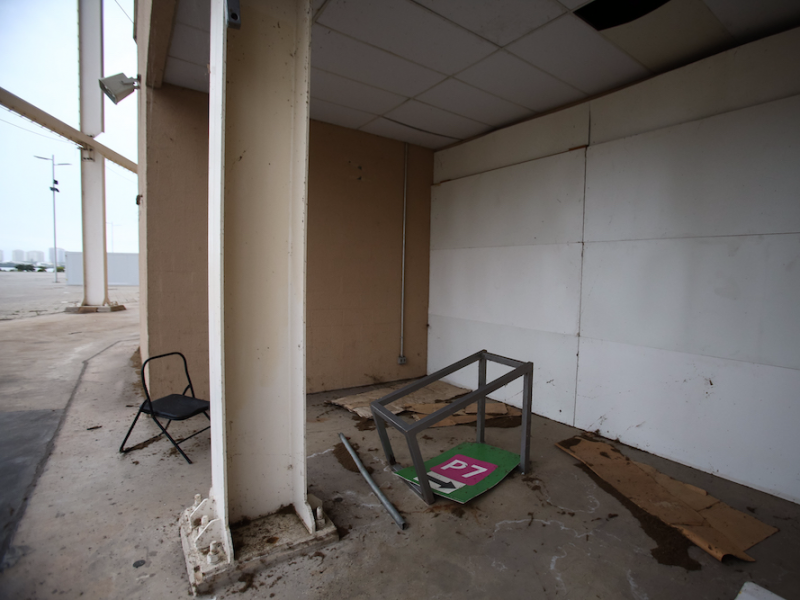
The Olympic golf course is mostly deserted. There are sometimes only three or four groups playing at a time.
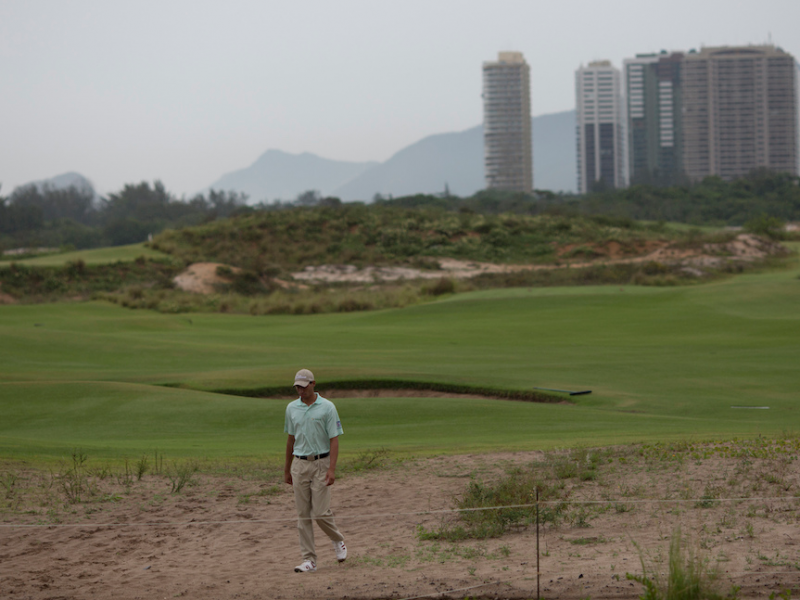
Source: Golf.com
The course cost around $20 million to build.
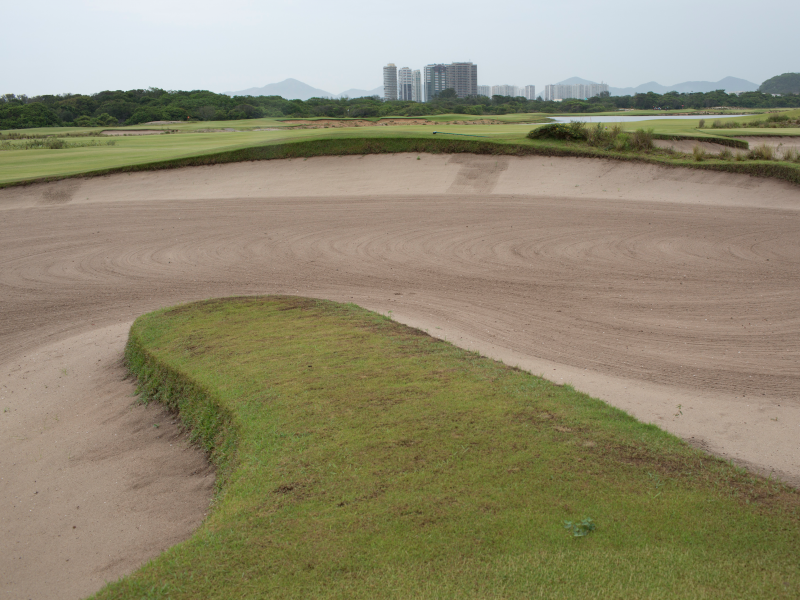
Source: Golf.com
Olympic signage continues to loom throughout the city.
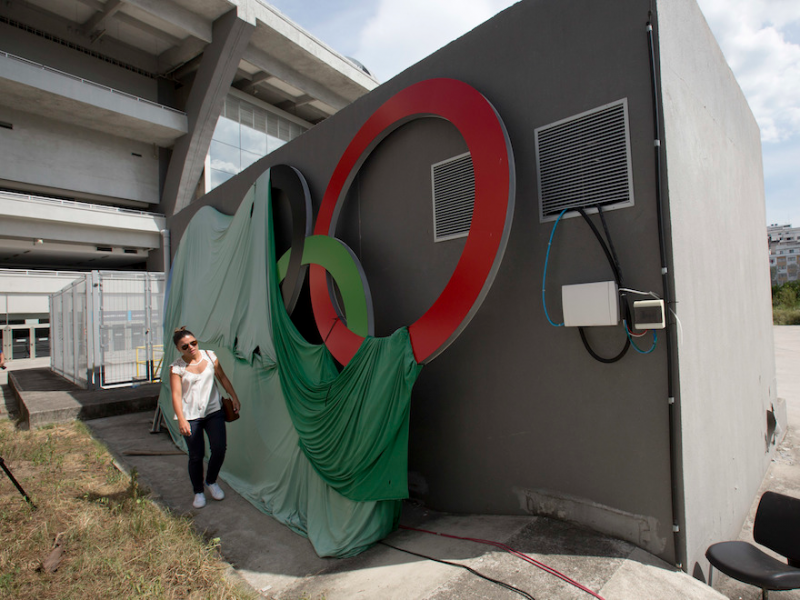
A view of Rio from the mostly abandoned Olympic Park.
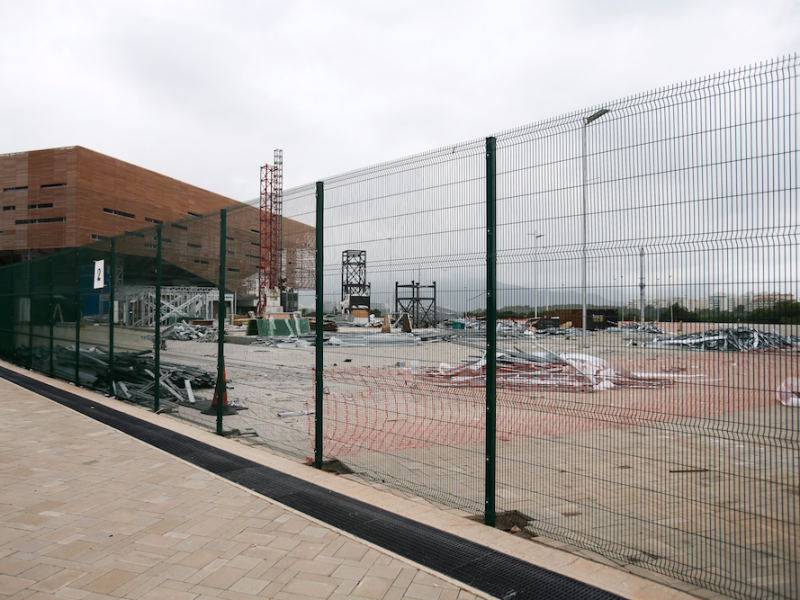
Thousands of apartments in Rio's Olympic Village were unoccupied after the games.

An abandoned water tank.

Cleaning up Guanabara Bay was a big part of Rio's successful bid to host the Games.
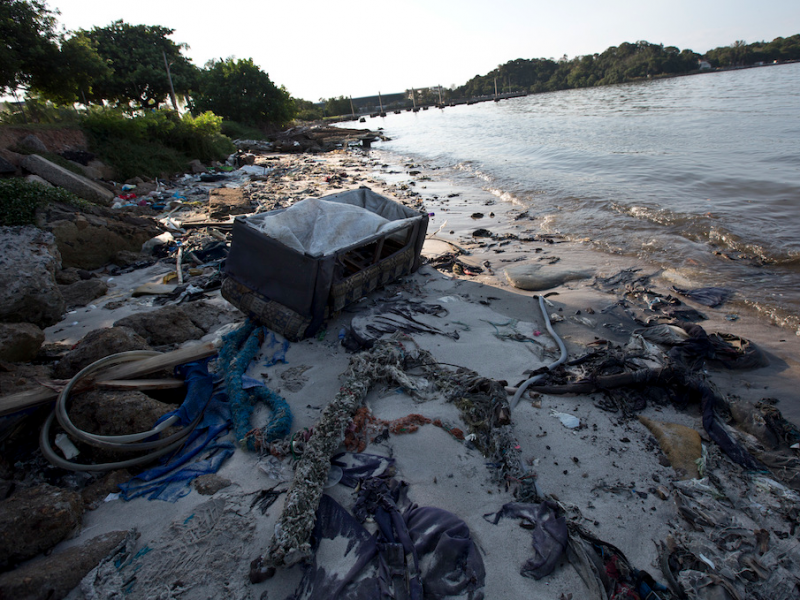
Source: One of the sites for the 2016 Summer Olympics is completely filthy, and it's going to stay that way
Lying in Rio's rubble are thousands of pamphlets from the Games — scars of an Olympics that proved to be more than the city bargained for.
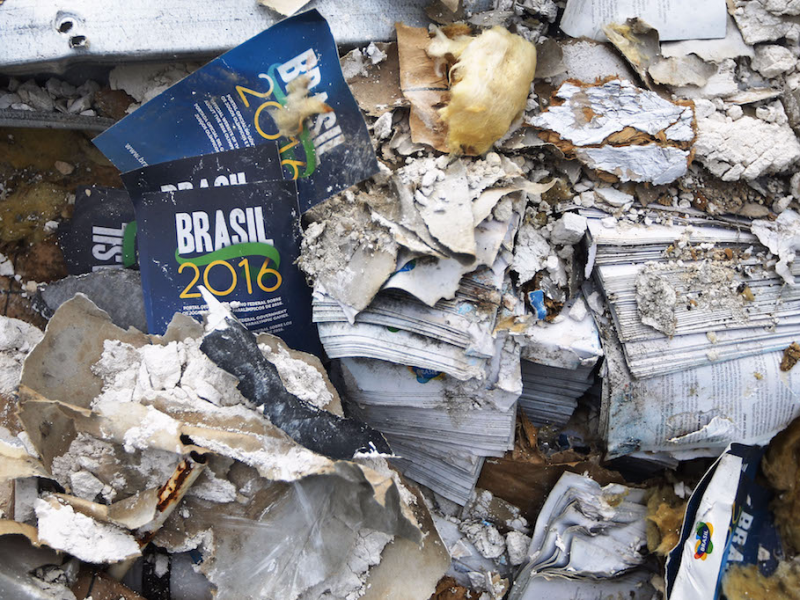
Pyeongchang has also felt the impact of hosting the 2018 Winter Olympics. Many of the venues, like the site of the downhill skiing events below, have gone under-used since the games.

The inside of the speed-skating arena is now reportedly dark and ice-less.
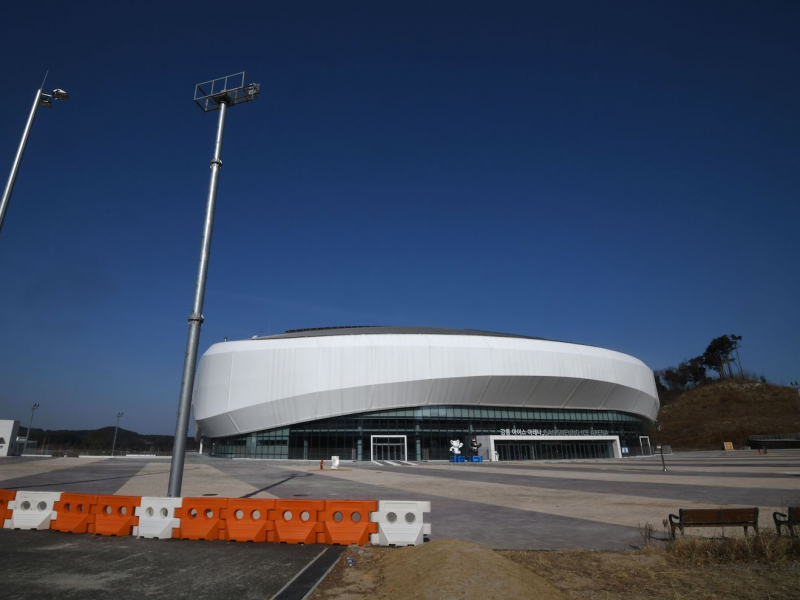
The gondola lift terminal is now blocked off by barbed wire.
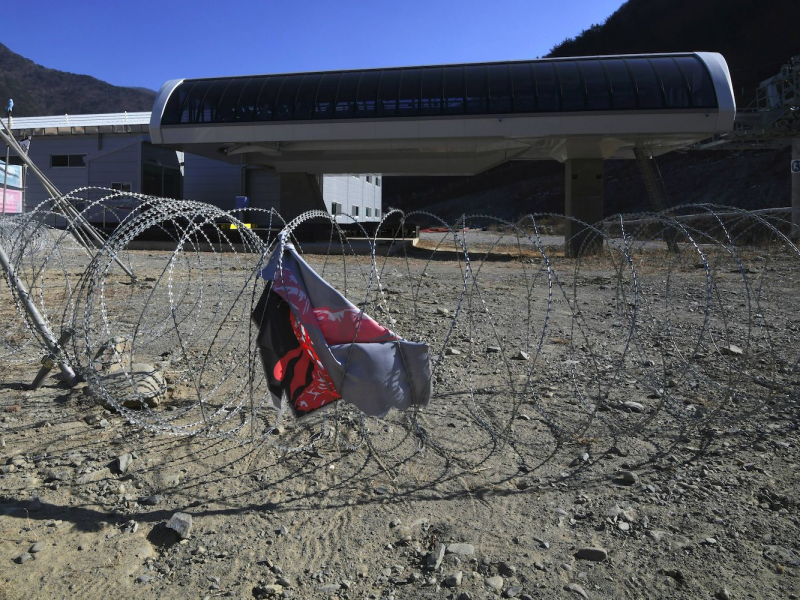
There are arguments in South Korea about the future and upkeep of the venues, as many of the winter sports simply haven't caught on in the region. Protest banners were hung on the fencing surrounding the Jeongseon Alpine Center.
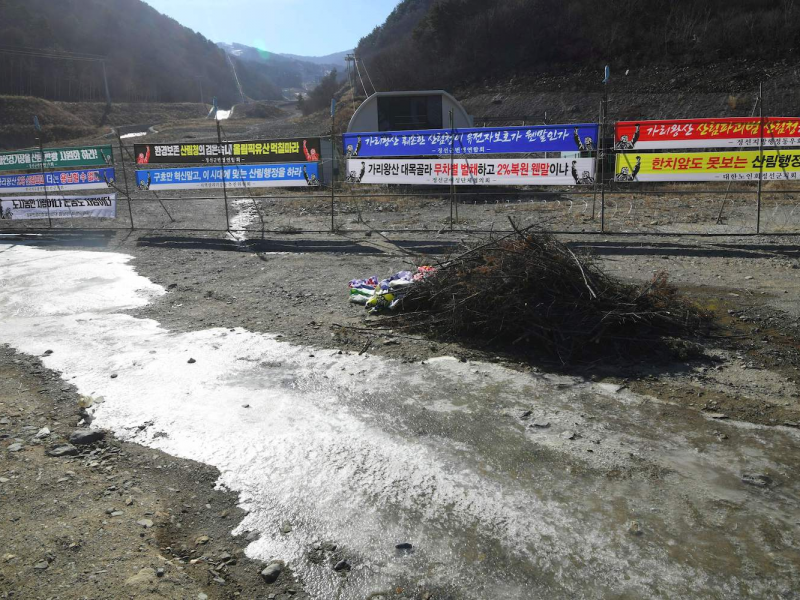
Source: AFP
Sarajevo hosted the Winter Olympics in 1984.
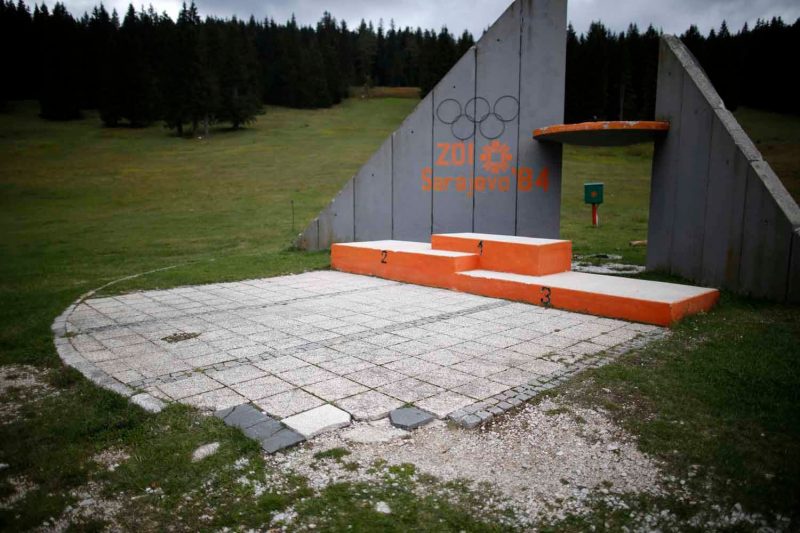
One decade later, civil war broke out amid the breakup of what was the country of Yugoslavia.
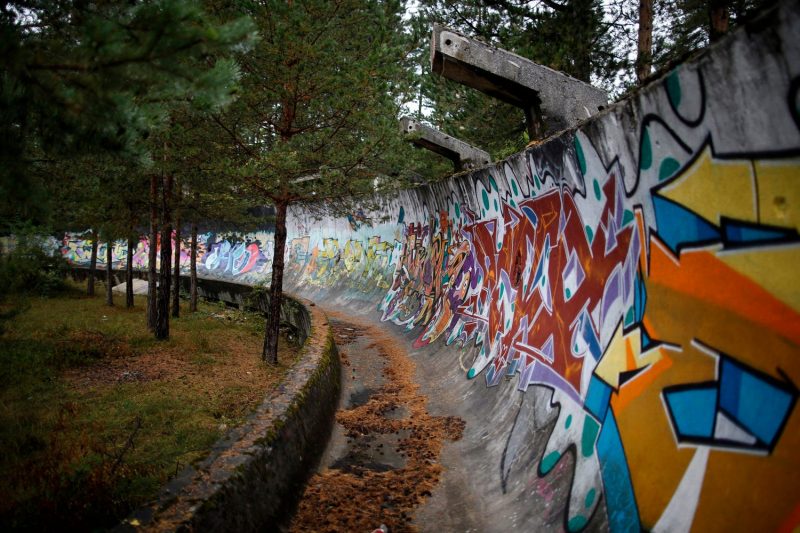
Some of the Olympic venues were repurposed and used as military facilities.
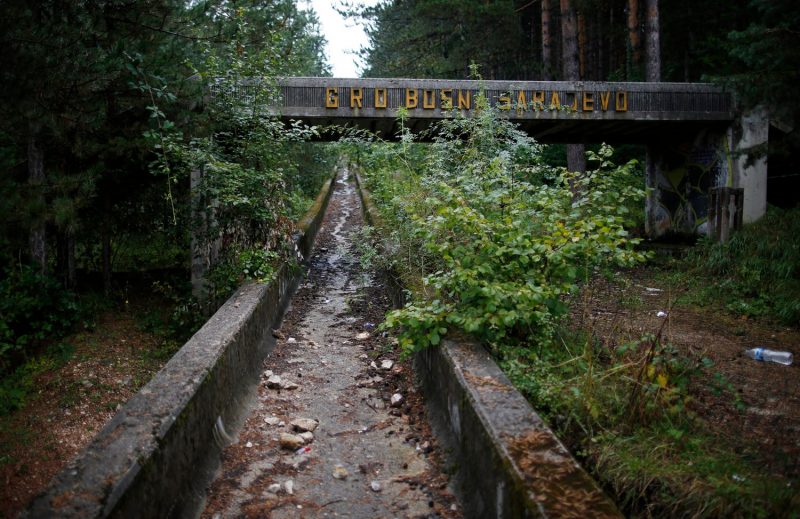
Source: REUTERS
The bobsled facility was turned into an artillery stronghold during the war.
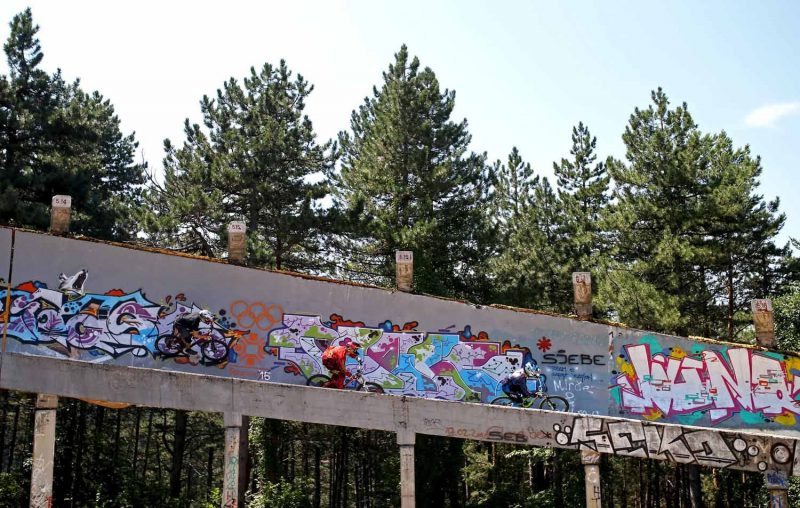
Source: REUTERS
The heavily graffitied course is sometimes used for BMX races.
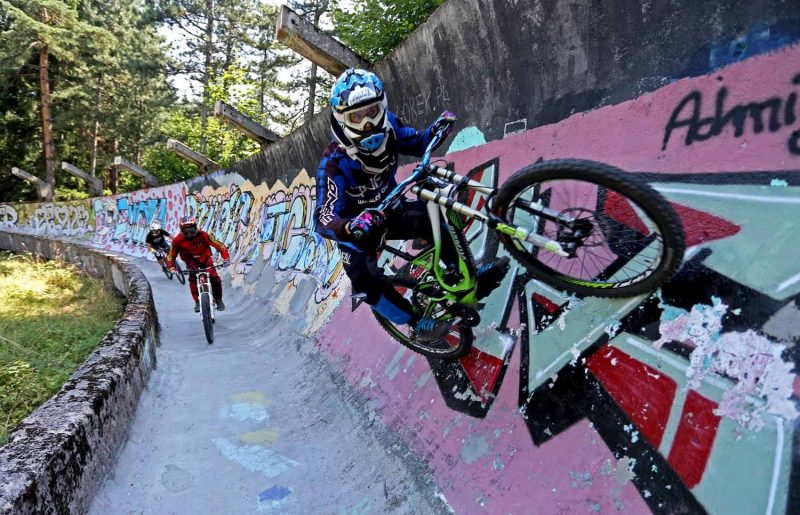
A dog walks past the Kosevo Stadium, where the opening ceremonies were held.

And weeds grow over the walls of the Kosevo Stadium.

The abandoned ski jump at Mount Igman.
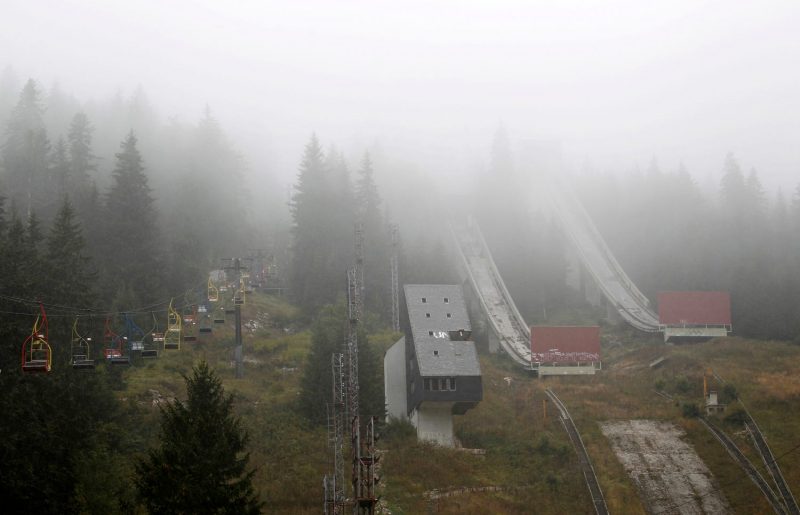
Seating is overrun with grass and weeds.
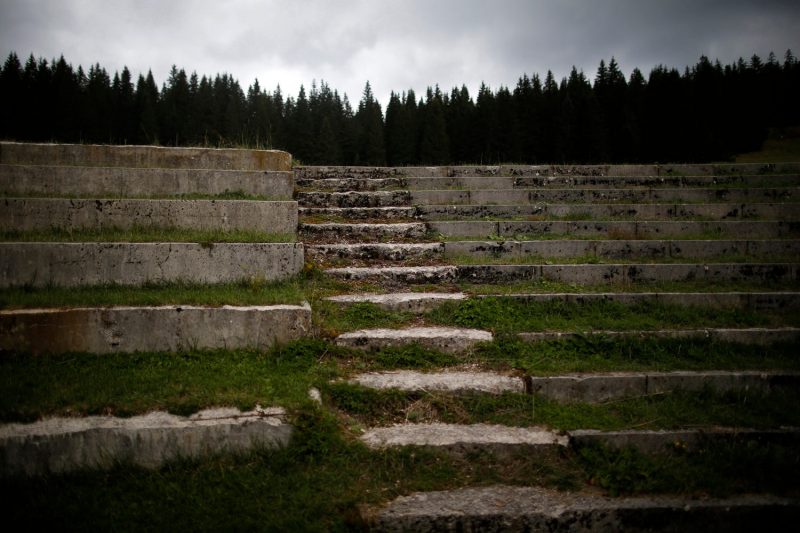
Another angle of the ski jump.
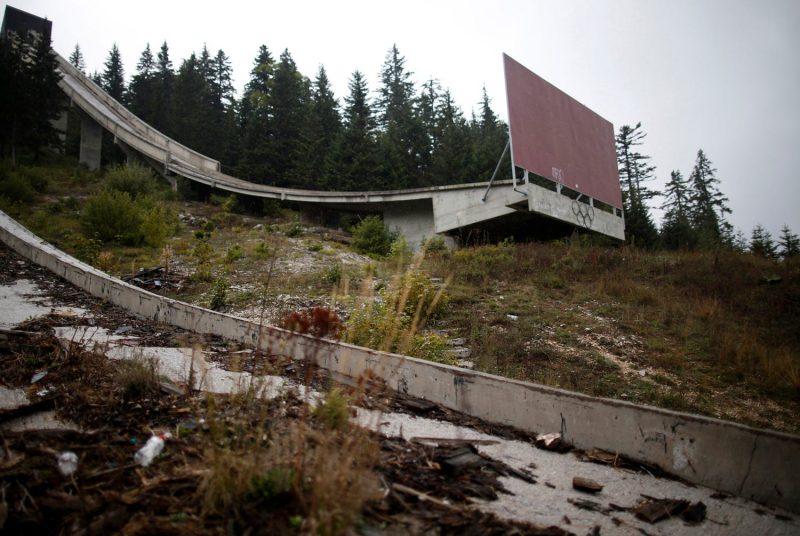
The track itself is covered in debris.

This is what's left of the figure skating facility, Zetra Hall.
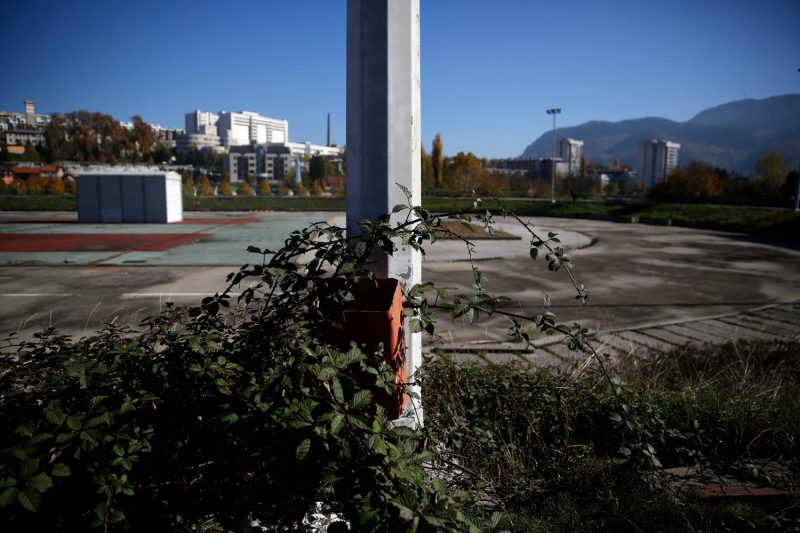
Beijing hosted the 2008 Summer Olympics and will host the 2022 Winter Olympics.
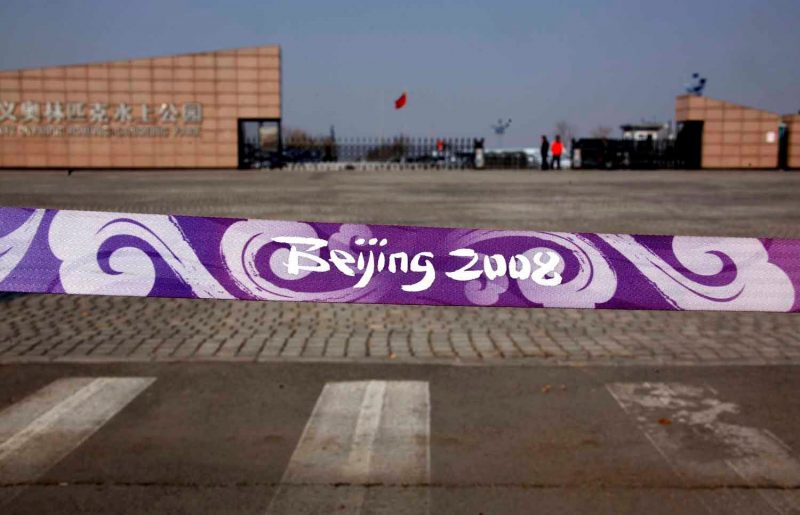
A sign from the area where the baseball stadium once stood.
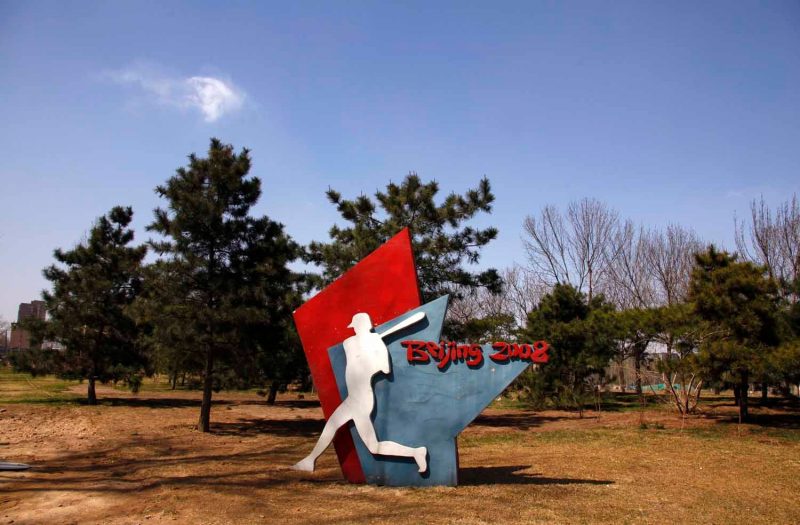
A stray dog on a field that was once inside the baseball stadium.

A makeshift broom in what was once an Olympic "green area."
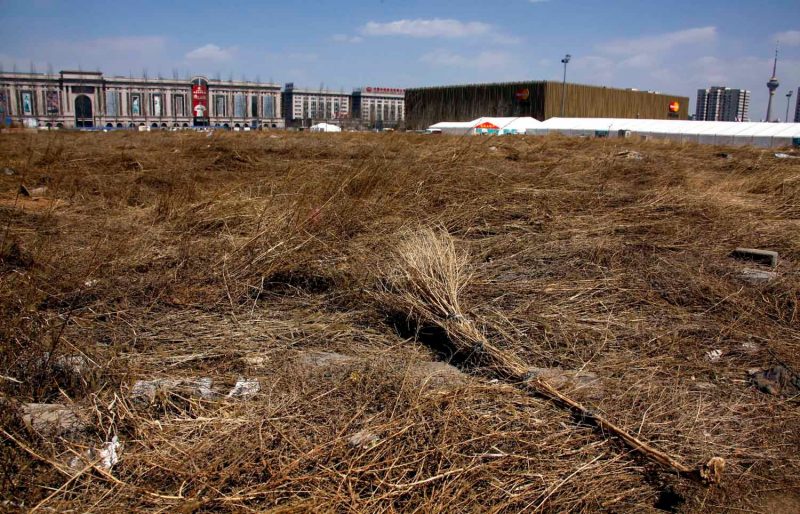
Tourists next to the rings in a former "green area" from the Olympics.

The parking lot for the cycling stadium is now used for driving tests.
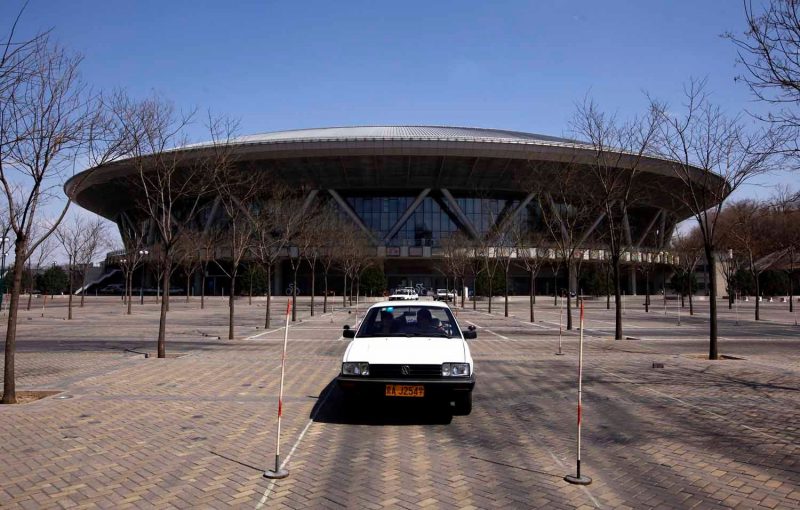
Source: REUTERS
The BMX park has been overgrown and a car company now rents out the site.
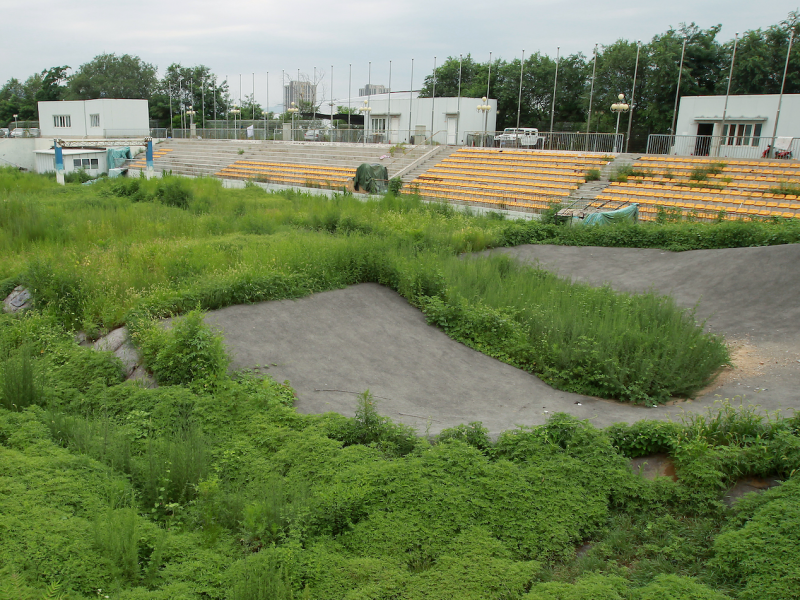
A rusting sign from the kayaking facility.
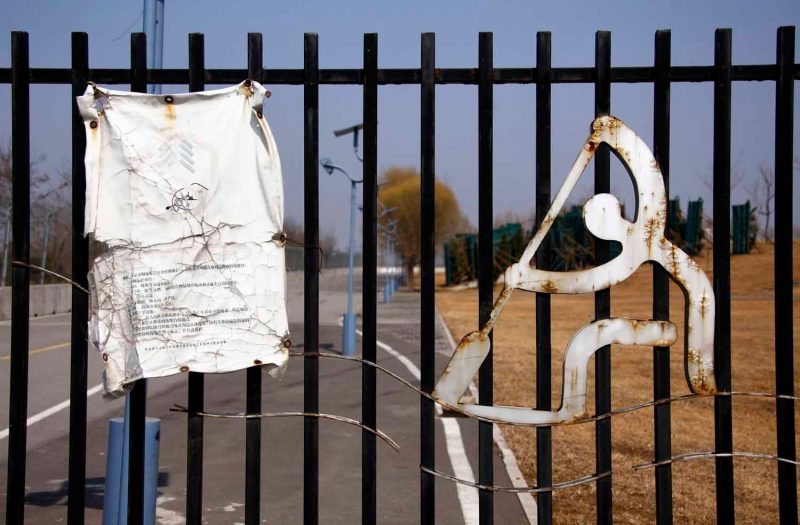
A security guard with a flat tire from his bicycle at the kayaking venue.
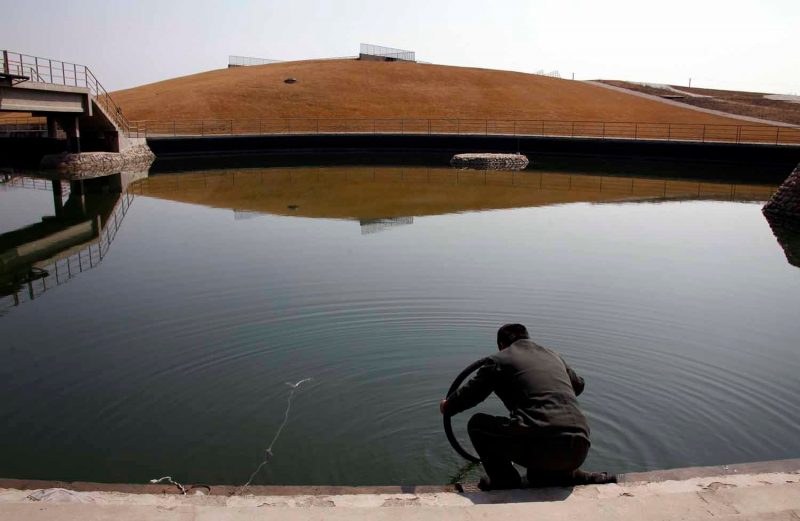
Source: REUTERS
The three empty poles in the left of the shot once flew country flags of medal-winning Olympians.
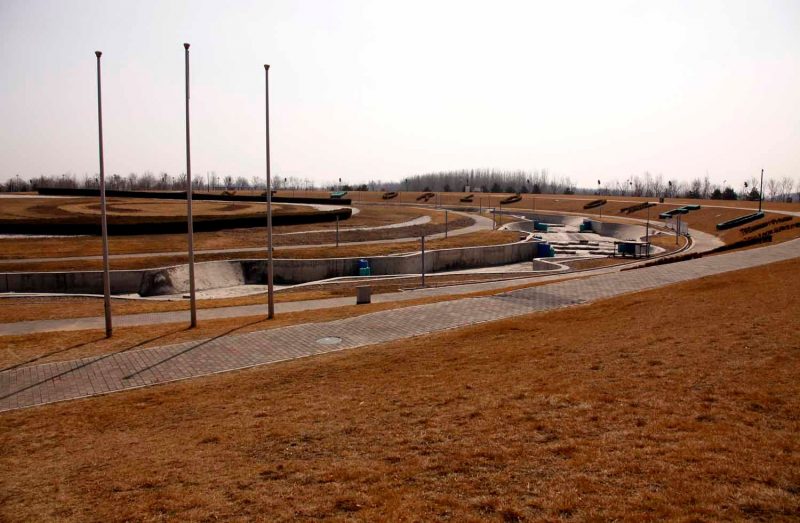
Source: REUTERS
The BMX facility.
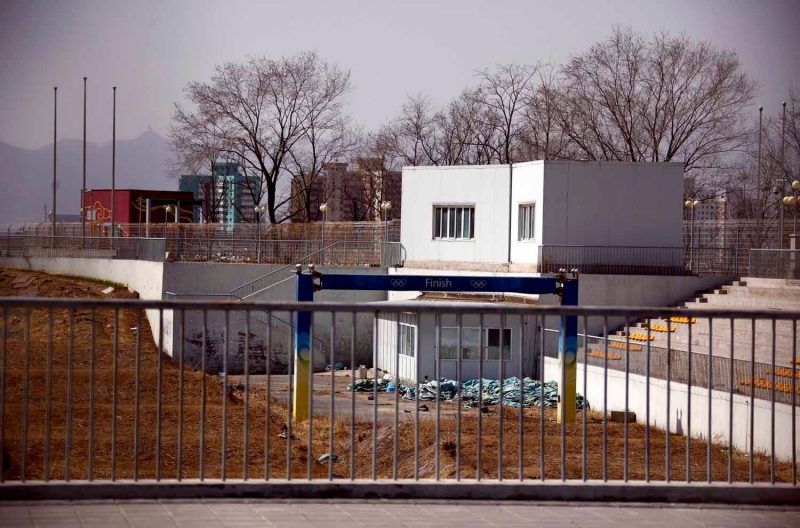
Many of their stadiums are shut out from the public, like the beach volleyball facility.
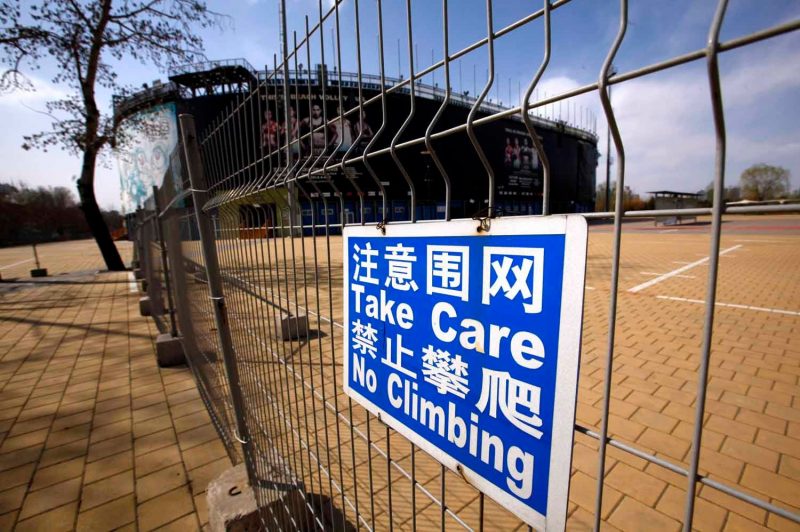
A promotional banner for beach volleyball still stands.
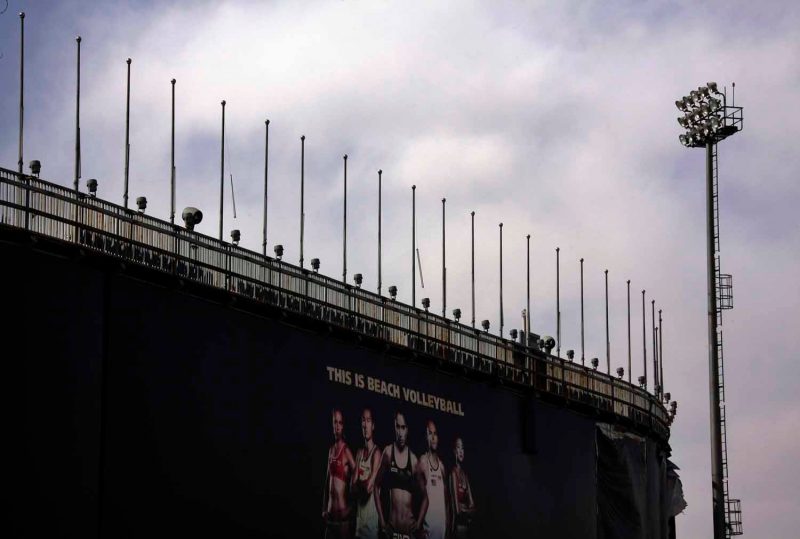
Panels on the outside of the beach volleyball facility are falling off.
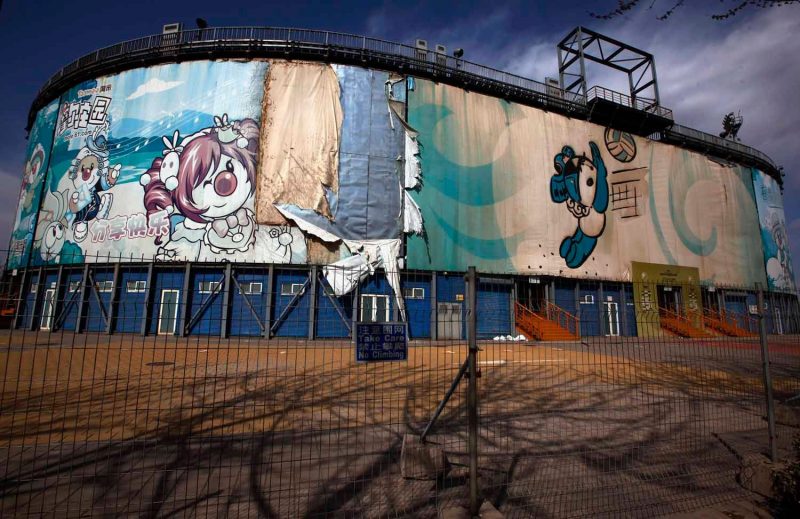
A boat sails past the stands and observation tower from the rowing facility.
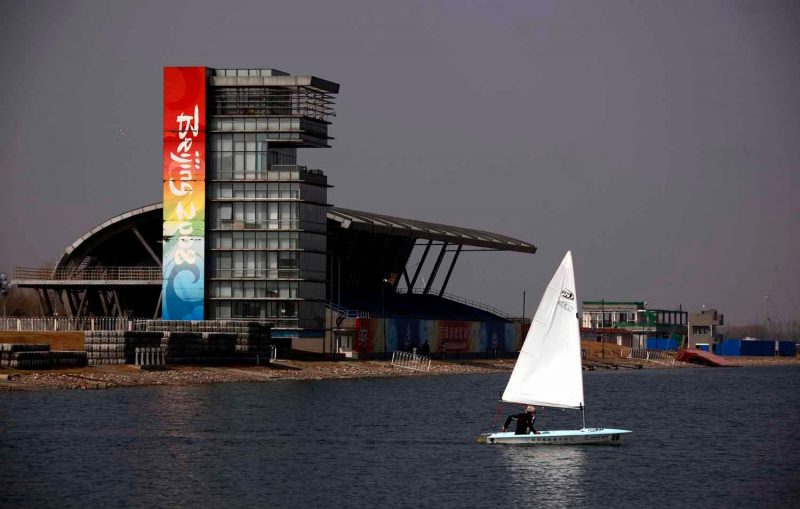
Two mascots of the games now live in the woods...
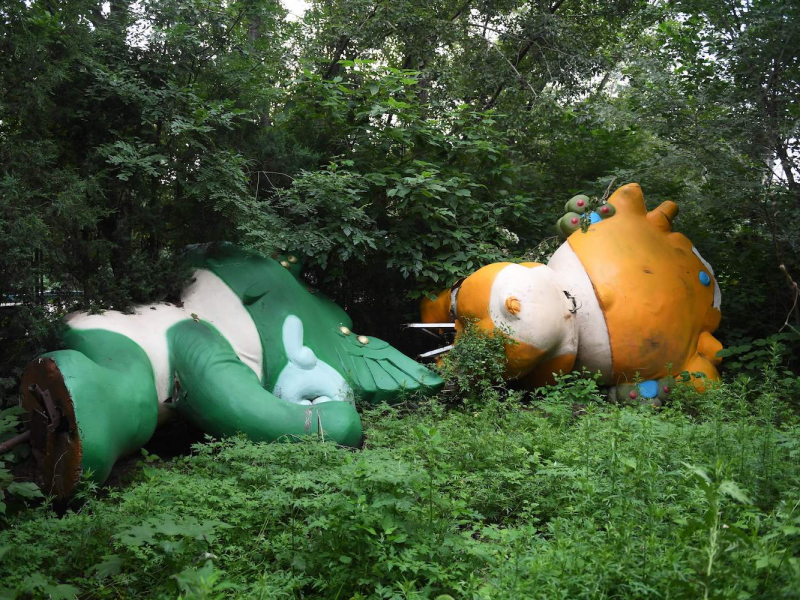
The polluted waters near the facility.
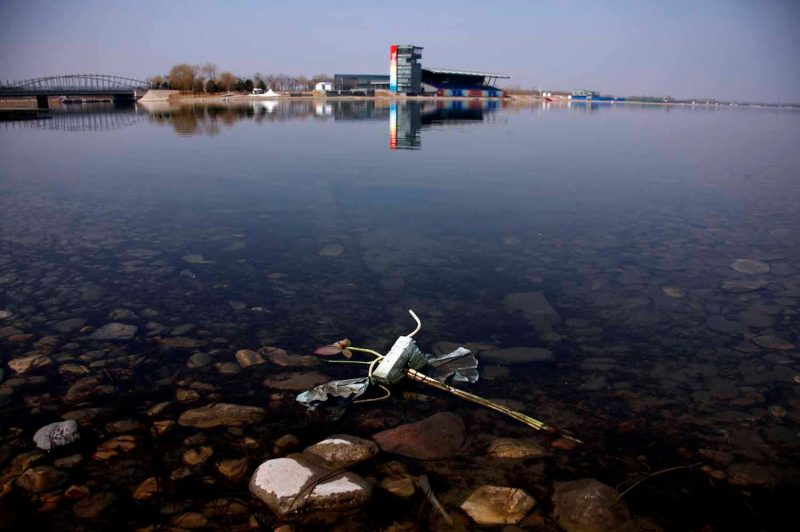
Athens went $15 billion over its budget to prepare for the 2004 Summer Olympics.
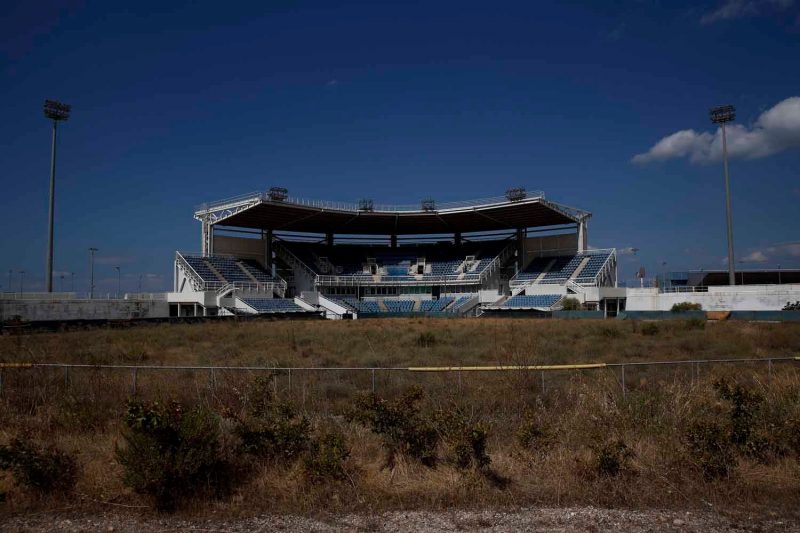
Source: IMF
Greece shouldered the cost overruns, and many of the facilities have fallen into disuse.

Source: Bloomberg
The Olympic Village is abandoned.
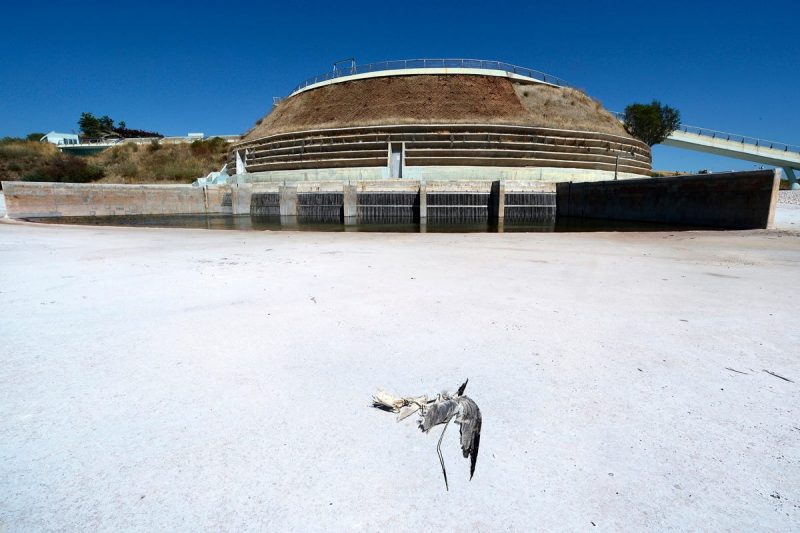
The city planned to turn the Olympic Village into public housing.

Source: Telegraph
Thousands of families applied to live there, but the whole project fell through.

Source: Telegraph
Seating areas are overgrown with weeds.
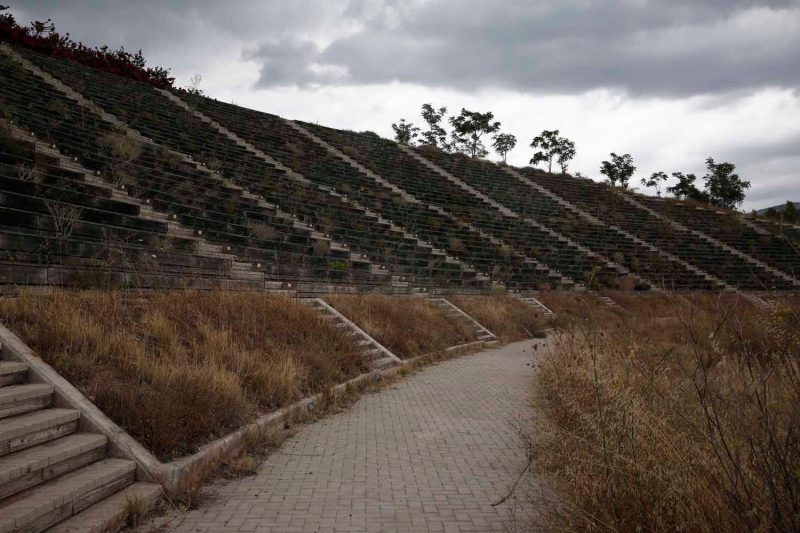
And stairs and covered in rust.

The canoe and kayak facility was the first in Olympic history to be filled with saltwater rather than freshwater.
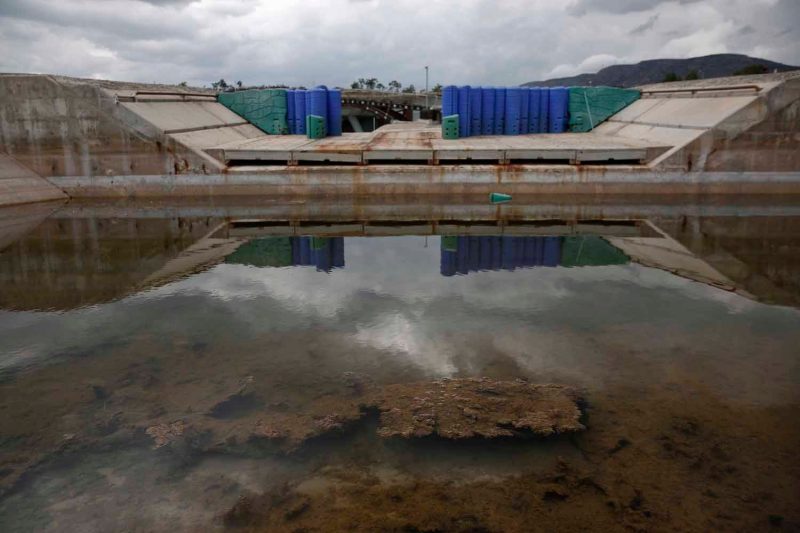
Source: New York Times
Now it's abandoned.
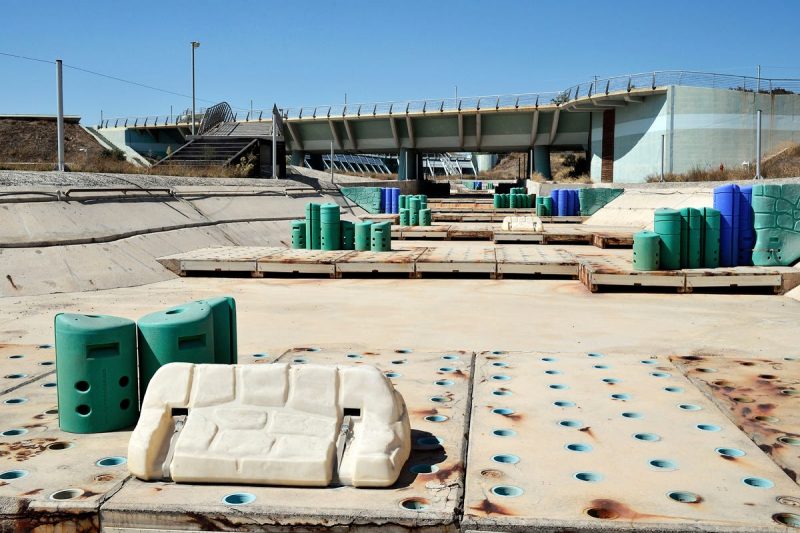
And dry in patches.
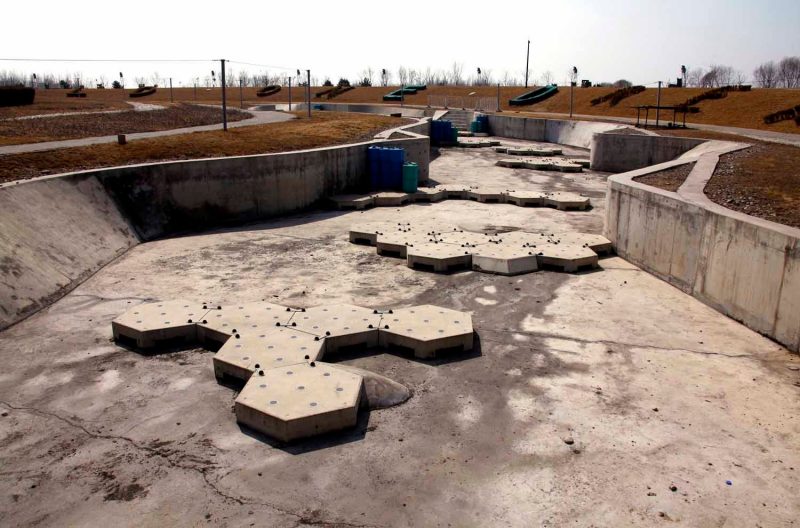
There's graffiti everywhere.

Beach volleyball practice courts are growing wild.

The beach volleyball venue from a distance.
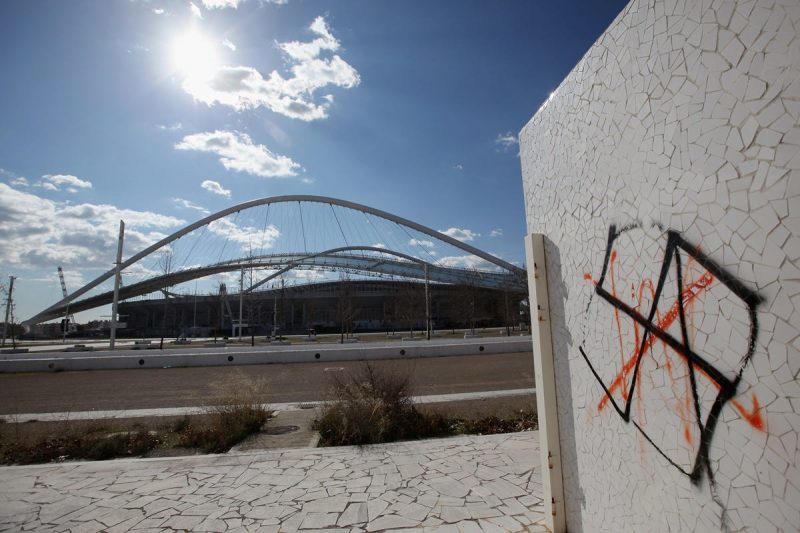
The inside is just as bad,
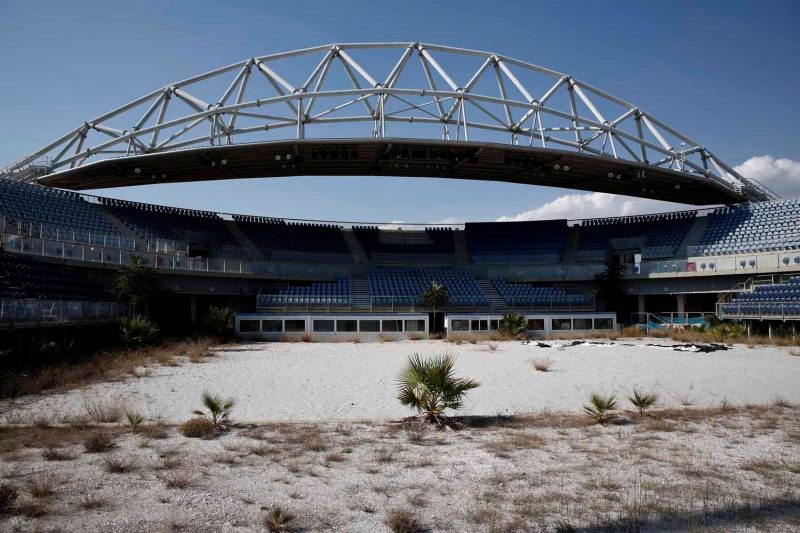
Like other venues, vegetation is taking over.

Weeds are everywhere.
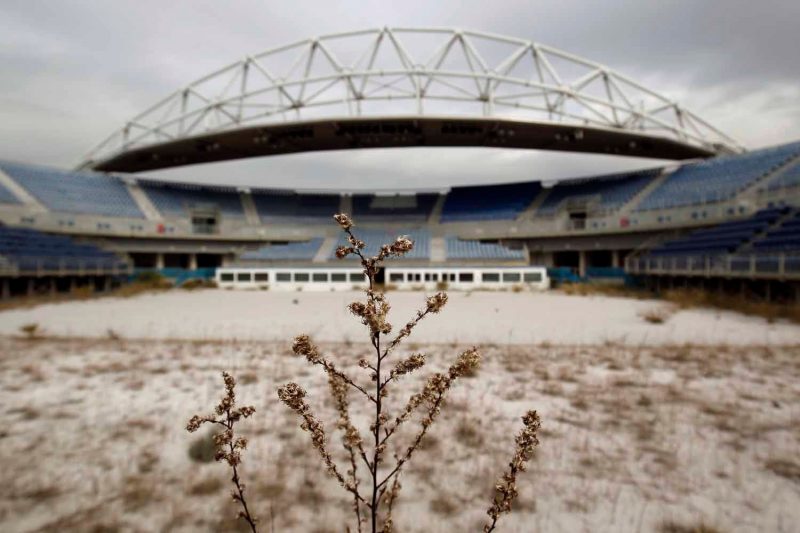
A diving center is drained.
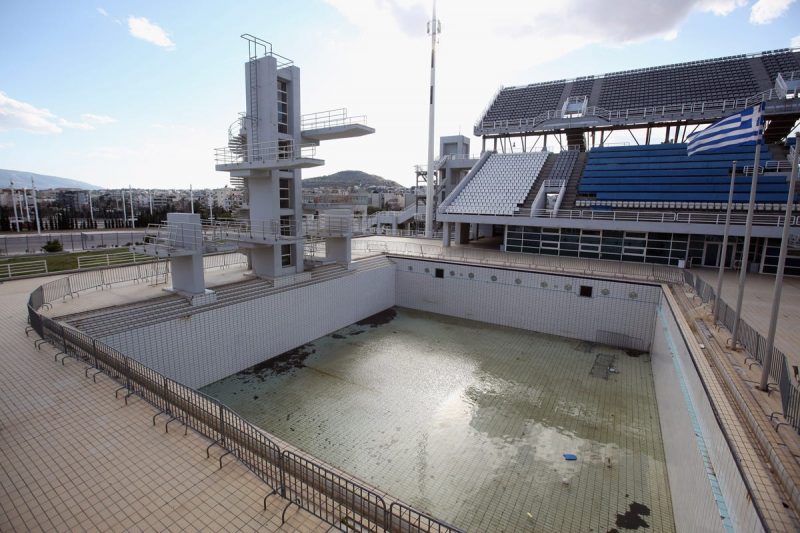
A pool at the Olympic Village is filthy.
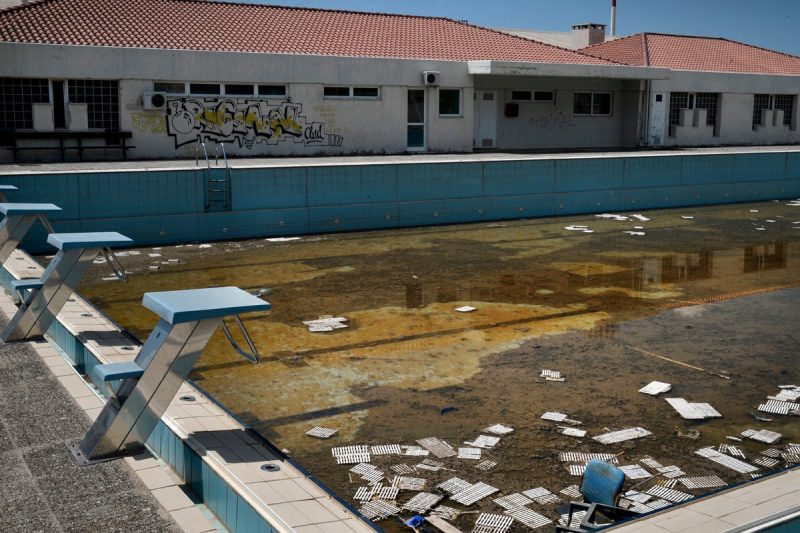
And polluted.
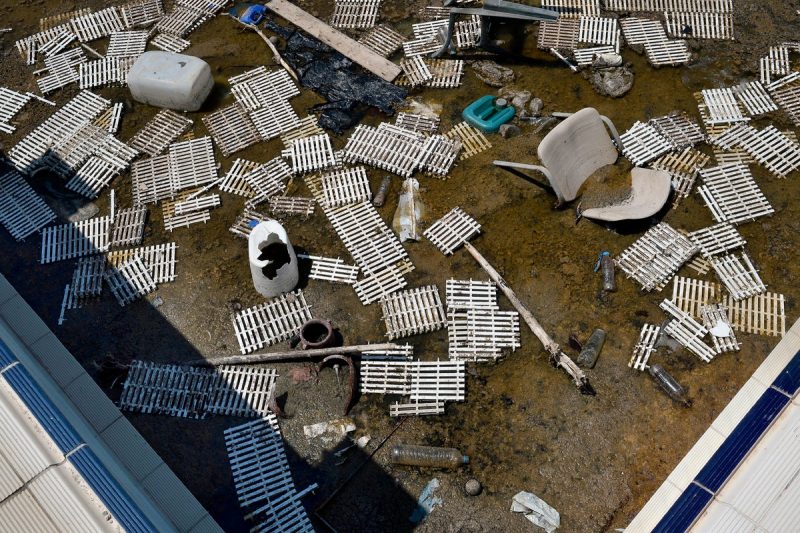
Frogs have found homes, at least.
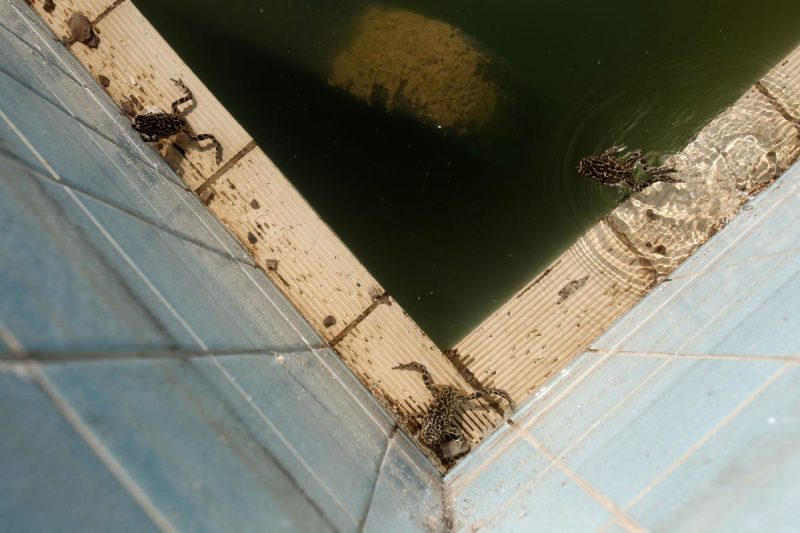
The tracks are still used by some, but it doesn't mean they're in good shape.

The field hockey facility.
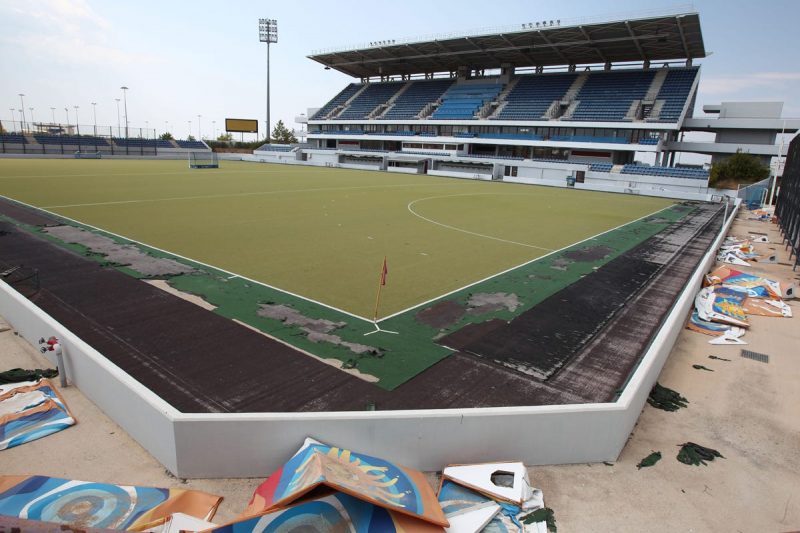
And an old podium.
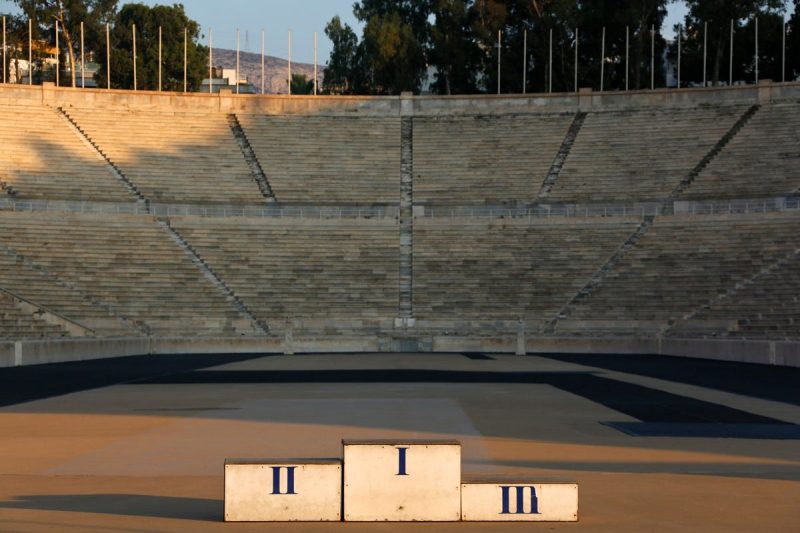
In Turin, where the 2006 Winter Olympics were held, the Olympic village isn't abandoned, but became housing for migrants and refugees.
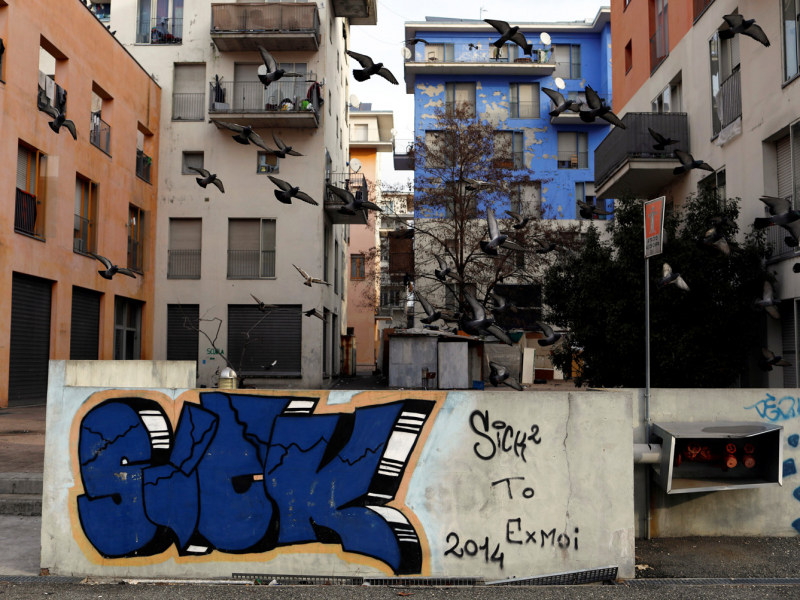
Read more: The 2006 Turin Olympics athletes village is now home to over 1,000 African migrants and refugees
It wasn't planned for such. After a migration program ended, many migrants and refugees were left without a place to go, so they took over the abandoned apartments.
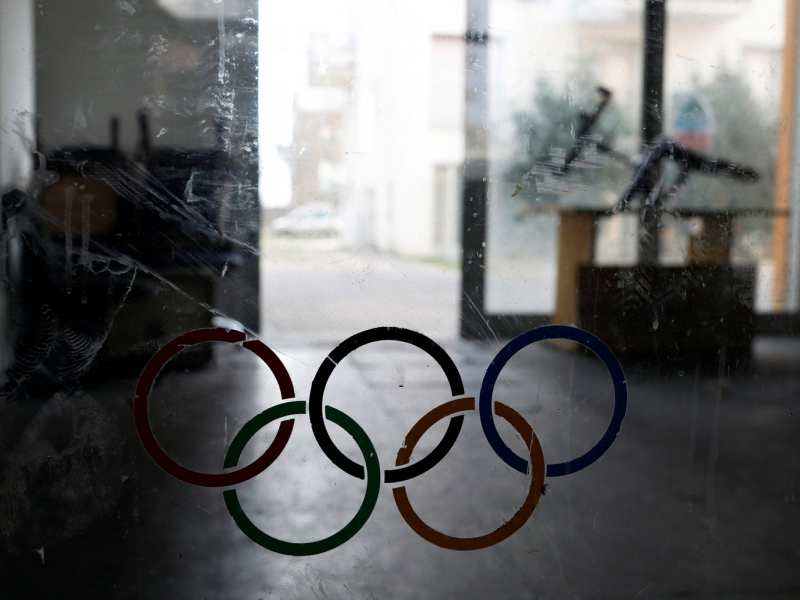
Some spaces have been repurposed as classrooms where the occupants learn English and Italian.
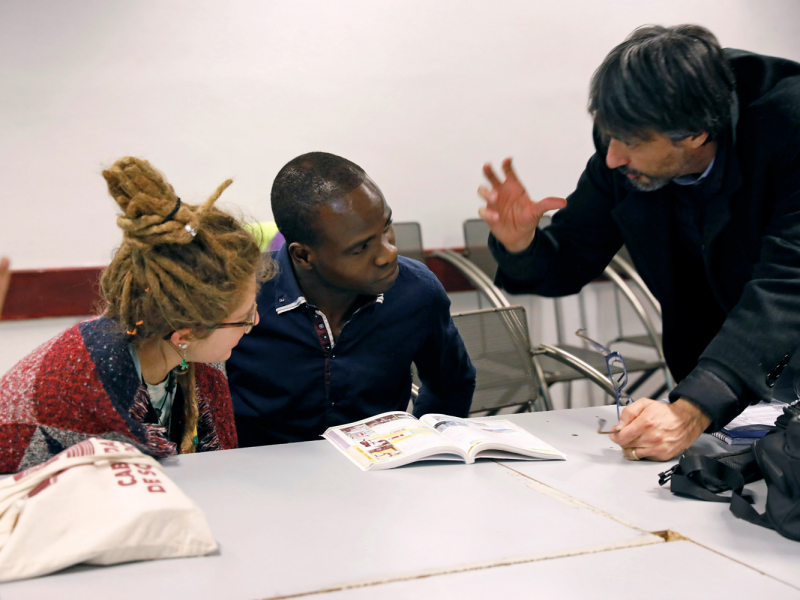
However, some of the buildings appeared to be cleared by Italian police in July 2019.
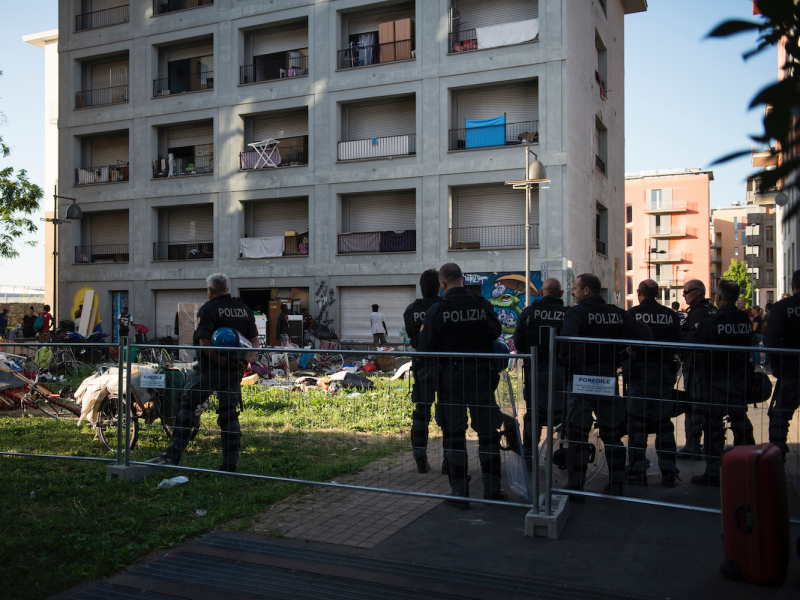
As buildings were cleared by police, items were discarded into the surrounding areas.

The 2020 Olympics in Tokyo are being threatened by the coronavirus. See what else in the sports world has been impacted by the virus...
